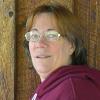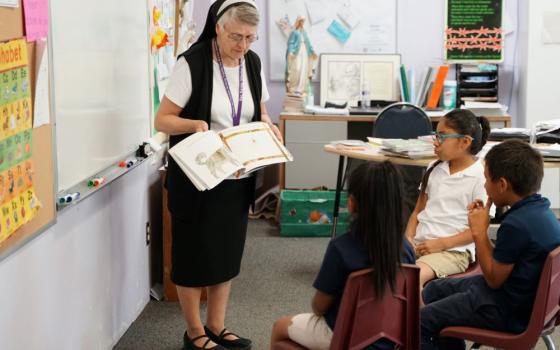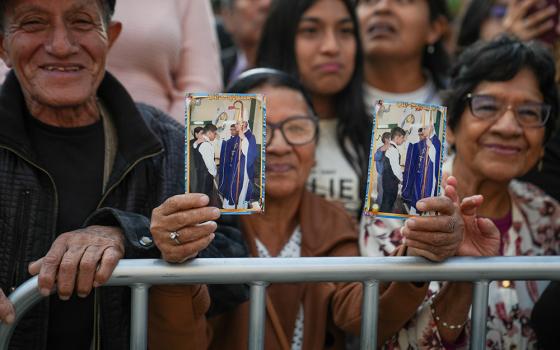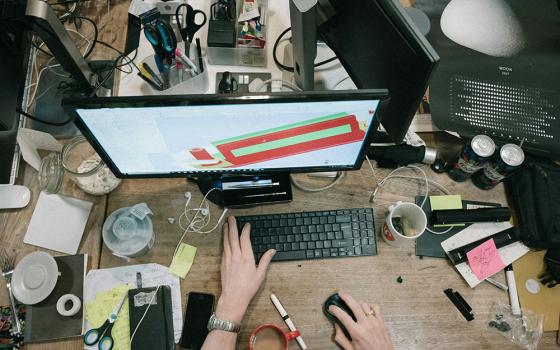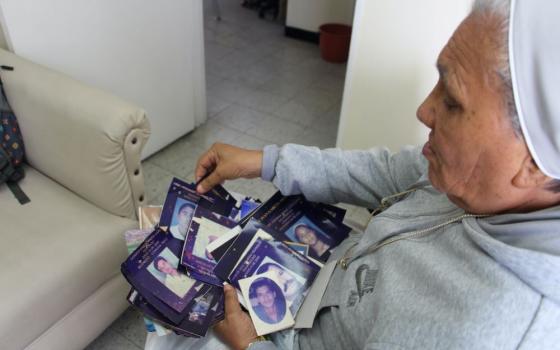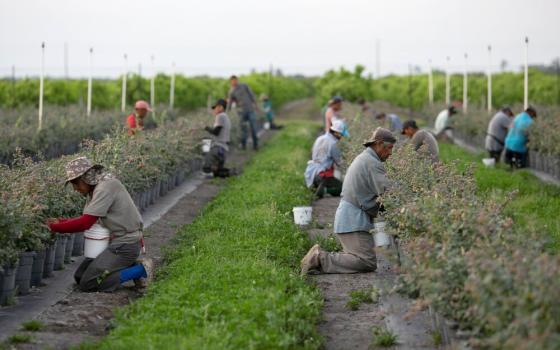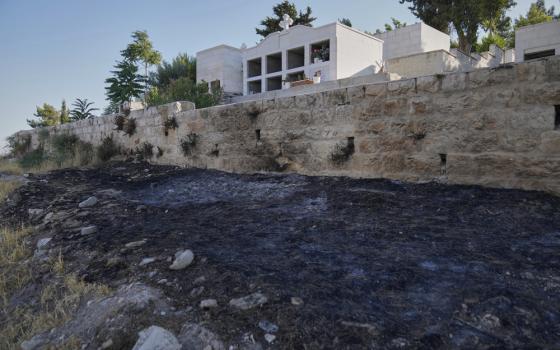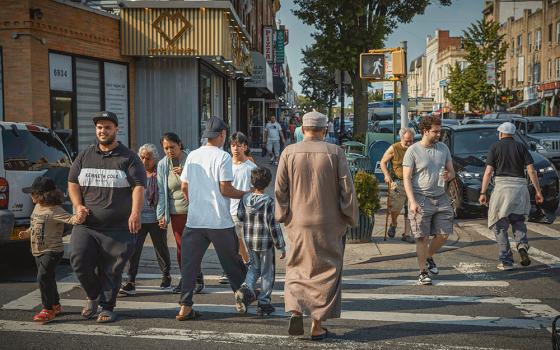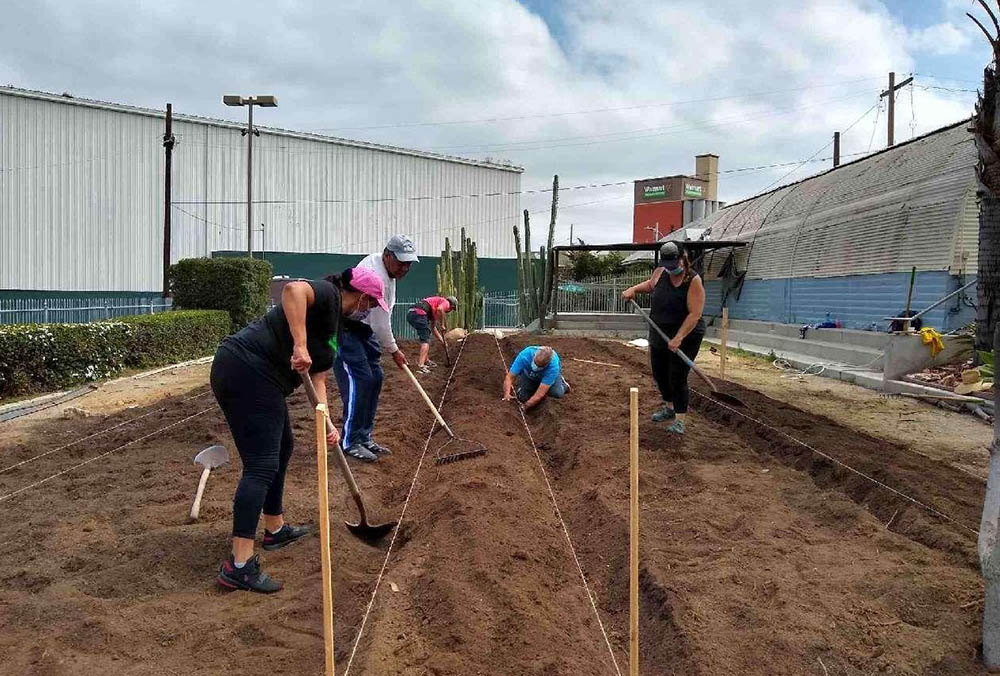
Volunteers prep the community garden, part of the new Community Resource Center at Our Lady of Guadalupe Parish in San Diego. (Courtesy of the Sisters of Mercy of the Americas)
Mercy Sr. Mary Waskowiak and Adela Garcia knew they would have to be patient to reach the immigrants most in need in Our Lady of Guadalupe Parish, located 14 miles from the U.S.-Mexico border in the Barrio Logan district of San Diego.
Jesuit Fr. Martin Silva, the parish pastor, and women of the parish had advised the two not to go knocking on people's doors and offering assistance.
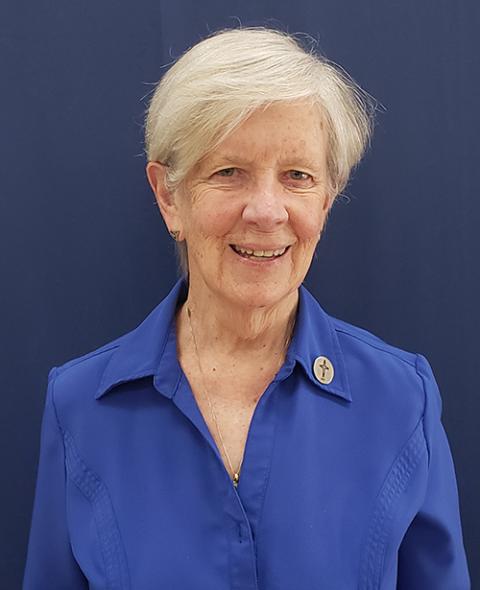
Mercy Sr. Mary Waskowiak (Courtesy of the Sisters of Mercy of the Americas)
"I was told that approach is very disrespectful to the Hispanic people," said Waskowiak, former president of the Sisters of Mercy of the Americas.
Instead, Waskowiak and Garcia decided to launch the Community Resource Center in the parish hall, allowing immigrants the opportunity to come in for assistance when they're ready.
The center, which has been open on Thursdays and Fridays since April, helps immigrants get food and clothing and works with them on job retraining and placement, stimulus check inquiries, and help with mental health issues.
Our Lady of Guadalupe's ZIP code has one of the highest COVID-19 infection rates in the area, Garcia said, so the center also provides information about the availability of the COVID-19 vaccine and helps immigrants overcome their fear of getting it because they are living in the country illegally.
Waskowiak said she has also intervened in situations involving a client's family member who had been detained by Border Patrol and U.S. Immigration and Customs Enforcement.
"It's truly word of mouth," Waskowiak said of how immigrants are finding their way to the Community Resource Center, which is staffed by dozens of volunteers from the parish and surrounding community. "These are wonderful human beings who have been caught in incredible, unhelpful situations in Mexico and U.S."
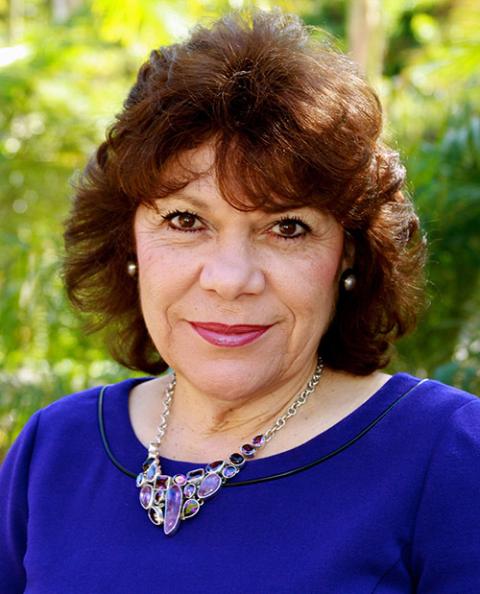
Adela Garcia (Courtesy of Adela Garcia)
Garcia said the first day the center's phone was working, a woman called and left a message in Spanish, saying she had just been released from the hospital and was concerned for her family. Within 24 hours, connections made through the center provided her with financial and other support necessary to allow her to continue her recovery without such a heavy burden.
"We have to do more than pray for people," Garcia said.
As a retired businesswoman, "I knew all the leaders of the nonprofits in San Diego, who are some of the biggest advocates for the poor," Garcia said. "All of us wanted to address this problem in our community."
Bringing those leaders on board wasn't difficult for Garcia. One governmental agency was so impressed by the Community Resource Center's mission, it now provides an on-site social worker who is there the two days a week the center is open. A host of other area nonprofits have come on board, as well, including Border Angels, Catholic Charities, Casa Cornelia Law Center, and the Chicano Federation.
Waskowiak* said she thanks God that being flexible is part of the Community Resource Center's mission, as is connecting to agencies willing to lend their expertise. "It is a partnership for the good of people beyond us, people truly in need."
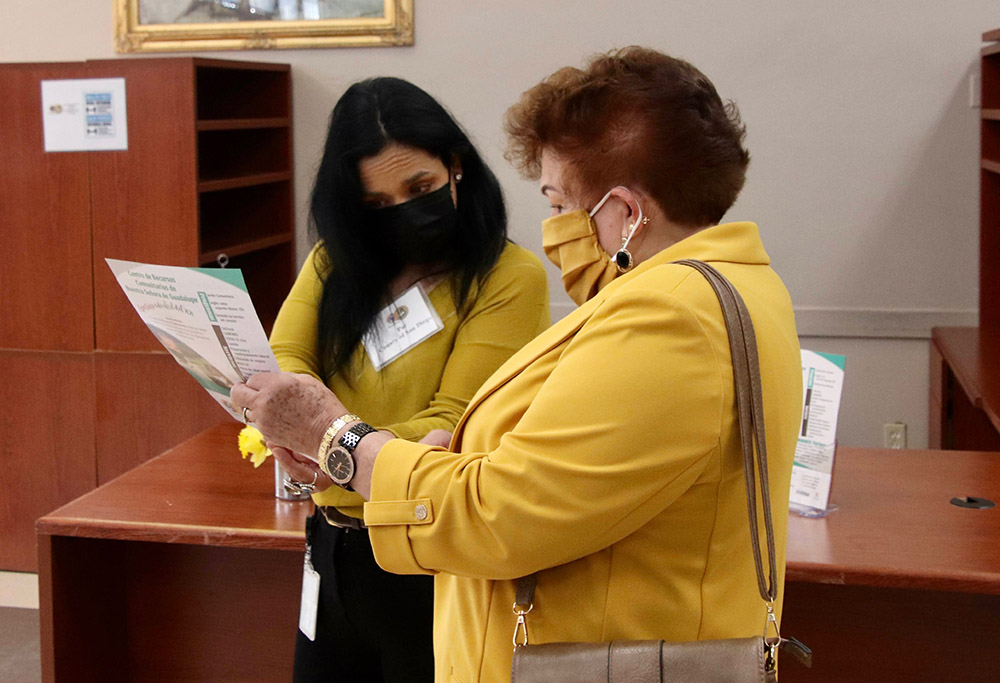
Social worker Pat Laffiton, left, talks with a parishioner at Our Lady of Guadalupe Parish in San Diego about the services offered at the Community Resource Center. (Courtesy of Adela Garcia)
"They are actively involved in finding solutions for our people," said Mercy Sr. Mary Kay Dobrovolny, who serves as vocation minister for the Sisters of Mercy of the Americas. In March, she moved to San Diego from the Detroit area to join a partner of the Community Resource Center: The Casa de Misericordia intentional community for those who wish to be a presence for immigrants in the community opened in September and occupies one of the former parish buildings.
That presence is reflected in the community garden for clients to grow their own fruits and vegetables, led by Angelie Ryah, a Protestant interdenominational minister, former pastor, spiritual director, avid gardener and member of the Casa de Misericordia intentional community.
Ryah exudes excitement about how the garden is blossoming. Although the garden started with a patch of lawn on the parish campus, families from the parish and those in the surrounding neighborhood now come together to nurture seedlings with an eye to the harvest.
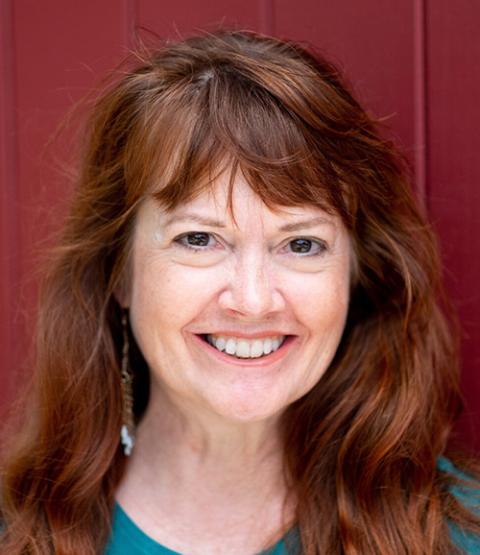
Angelie Ryah (Courtesy of Angelie Ryah)
"I just see people so happy to get to be out in nature, to dig in the dirt," Ryah said. She calls the work "dirt therapy" and describes how "the stress of the day is less if you can just get outside."
The garden is not just a place to grow much-needed food, Ryah added: It's an opportunity for people to reconnect with each other after California's long COVID-19 lockdown restrictions. Some are also expressing a desire to reconnect with the church and the parish, she noted.
"The garden is already drawing people back to their relationship with God," she said. "That's a spiritual director's dream."
The center is still getting ministries off the ground. The first meeting of the Healing Heart Wounds program, which Waskowiak founded for people to heal spiritual and mental wounds from their teenage years, gathered about a dozen attendees in May. And classes teaching English as a second language, which have the highest number of sign-ups of all programs so far, will begin as soon as a location is secured and provisions for following ongoing coronavirus safety protocols are in place, Waskowiak said.
On Sundays, community members from Casa de Misericordia and the parish travel south and walk from the Pacific Ocean shoreline toward the San Ysidro border crossing, praying and being present, she said.
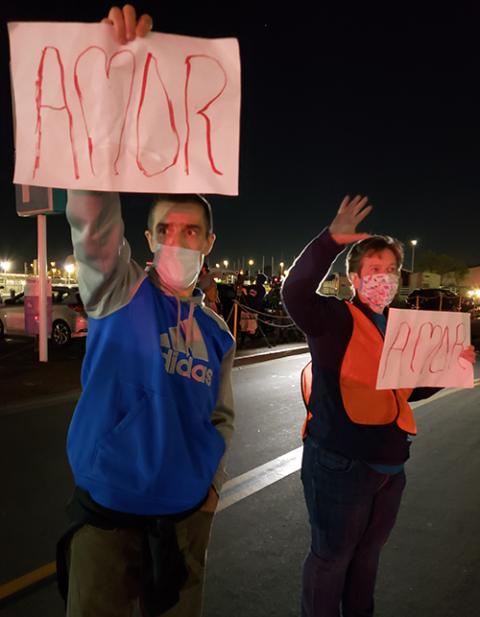
Sean Farry, left, and Mercy Sr. Mary Kay Dobrovolny, both members of Casa de Misericordia, welcome a group of unaccompanied minors arriving at the San Diego Convention Center on March 20. (Courtesy of the Sisters of Mercy of the Americas)
Casa de Misericordia members also spend time at the San Diego Convention Center, which has been recently converted into a processing center for unaccompanied minors. As many as 1,450 youngsters between the ages of 5 and 17 can be housed in the structure, Dobrovolny said.
Because the background checks for volunteers at the convention center are extensive, Dobrovolny and Waskowiak spent weeks with conditional clearance, allowing them to only interact with the youth for a biweekly Catholic Mass, presided over by San Diego Auxiliary Bishop Ramón Bejarano. The other weeks, Protestant denominations hold services, Dobrovolny said.
At the end of May, however, both sisters had fulfilled all the requirements to become official volunteers at the convention center, Waskowiak said. They can now interact on a regular basis with the youth, being present and supporting them during the transition to life in the United States.
"It's a privilege to be able to go and be present to migrant youth in that way," Dobrovolny said, adding that Bejarano's liturgies are especially poignant because he is a former migrant farmworker.
The Community Resource Center seems to be making a slow start — it has assisted just more than 30 families so far — but "we're purposely starting small," Waskowiak said. For her and those served, Casa de Misericordia and the Community Resource Center "are a community wanting to be of service to the migrant people."
Garcia agreed: "When you're working together as a community, magic happens."
*An earlier version of this story misidentified the speaker of this quote.
Advertisement
